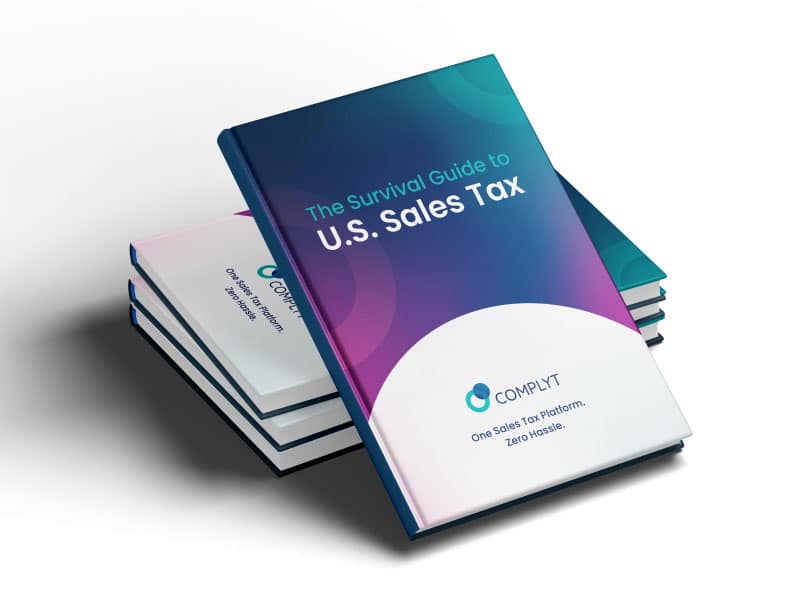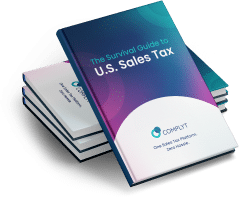What is the sales tax rate in Connecticut?
Connecticut has a uniform statewide sales tax rate of 6.35%. Unlike other states, Connecticut does not have additional local sales taxes, providing a consistent rate across the state.
While the general sales and use tax rate is 6.35%, other rates are imposed under Connecticut law as follows:
- 1% – for sale of computer and data processing services and canned software electronically accessed or transferred, without any tangible personal property, that is purchased by a business for business use. Canned software that is transferred with tangible personal property is taxable at 6.35% in all cases
- 2.99% – Sale of vessels, motors for vessels, trailers used for transporting a vessel, and dyed diesel fuel sold by a marine dock exclusively for marine purposes
- 4.5% -Sale of a motor vehicle to a nonresident member
- 7.35% -Sales of meals and certain beverages
- 7.75% – Most motor vehicles with a sales price of more than $50,000; items of jewelry, whether real or imitation, with a sales price of more than $5,000; and articles of clothing or footwear intended to be worn on or about the human body, or a handbag, luggage, umbrella, wallet or watch, with a sales price of more than $1,000
- 9.35% – Rental or leasing of a passenger motor vehicle for a period of 30 consecutive calendar days or less
When should your business collect Sales Tax in Connecticut?
A business must collect sales tax in Connecticut if it has a sales tax nexus within the state. Nexus, a Latin word meaning “to bind or tie,” is essentially the concept that a business has a sufficient connection to a state, and is therefore subject to state sales tax laws. A nexus can be established either through a physical presence or an economic presence.
Connecticut Physical Sales Tax Nexus
Physical presence can be established in numerous ways. For instance, if a business has an office, warehouse, store, or other physical location in Connecticut, it has a physical presence. Furthermore, if an employee or independent contractor is operating in Connecticut, that could also establish a physical nexus.
Connecticut Economic Nexus: Revenue, Thresholds and Transactions
An economic nexus, on the other hand, can be established if a business has more than $250,000 in gross receipts and conducts 200 or more separate transactions within Connecticut.
Which services are taxable in Connecticut?
In Connecticut, the majority of services are not subject to sales tax. However, several are considered taxable. These include but are not limited to:
- Services to industrial, commercial or income-producing real property
- Computer and data processing services
- Telecommunications services
- Repair services to tangible personal property and certain motor vehicles
- Motor vehicle towing and road service
- Miscellaneous personal services (e.g., health and athletic club services, tanning services, etc.)
If you are unsure whether the service your business provides should add sales tax to the total, contact your tax advisor.
Connecticut Sales Tax on Products: How to Calculate What Your Business Should be Charging
When calculating the amount of sales tax to charge, the process is relatively straightforward: multiply the total cost of the item or items by the Connecticut state sales tax rate plus the specific product/service sales tax(6.35%+X). This will give you the total amount of sales tax that should be added to the customer’s bill.
For example, if a business sells a designer handbag priced at $1,000, the seller needs to charge a sales tax of $6.35 plus $7.75. The total sales price will then be $1,141.
How does the Connecticut clothing tax work?
Clothing sales tax is applied at a rate between 6.5% and 9.3% in Connecticut. But note that this sales tax only applies to clothing items and footwear priced at $50 or higher.
During the annual tax-free week, usually held during August, clothing and footwear priced below $100 are also fully exempt from sales tax.
But Connecticut makes things interesting by taxing clothing and footwear priced at $1,000 or more at a higher rate of 7.75% (plus local sales taxes).
Connecticut Online Sales Tax: Are SaaS and Digital Services Taxable?
Yes, in Connecticut, sales of digital goods and services, including Software as a Service (SaaS), are subject to sales tax. This is a key consideration for any business operating in the digital or tech space.
SaaS Sales Tax Connecticut: Should I be charging sales tax on SaaS?
If your business is providing SaaS products to customers in Connecticut, then yes, you are responsible for charging and remitting Connecticut SaaS sales tax on these transactions.
How can a business get a sales tax permit in Connecticut?
A business can obtain a sales tax permit in Connecticut by applying online through the Connecticut Department of Revenue Services. The application process is simple, requiring basic information about your business and its activities.
Collecting Sales Tax in Connecticut as a Business
Businesses operating in Connecticut are obligated to collect sales tax from customers at the point of sale and remit this to the Department of Revenue Services. The specific processes and timelines for remittance will depend on the nature of your business and the amount of sales tax collected.
Connecticut Tax Return Due Dates Explained
Connecticut sales tax returns are generally due on the last day of the month following the end of the reporting period. For example, if your reporting period is March, your sales tax return would be due on April 30th. If the last day of the month falls on a weekend or holiday, your sales tax return would be due on the next business day.
What is the required frequency for sales tax returns in Connecticut?
The frequency with which you must file a sales tax return in Connecticut depends on the amount of sales tax your business collects. The thresholds are:
- Monthly: $4,000 or more per month
- Quarterly: At least $1,000 but less than $4,000 per month
- Annually: Less than $1,000 per month

